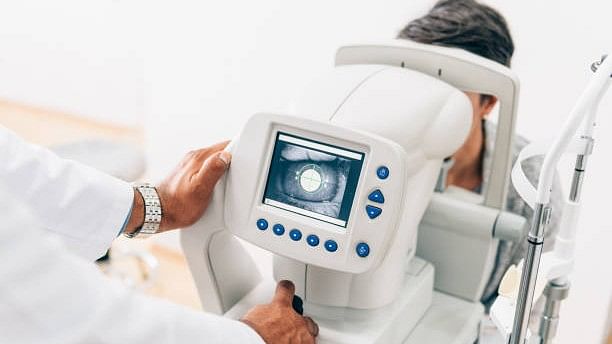
Image for representation.
Credit: iStock Photo
Windows to the soul they may be for poets, but doctors could learn our bodies' innermost secrets through our eyes too. The latest breath-through medical research is looking into novel approaches to use the eye as a lens to identify early symptoms of a variety of diseases, according a report by Intersesting Engineering.
Leading this research is a group of experts from Indiana University, Northwestern University, Stanford University, and the New York Eye and Ear Infirmary in the United States.
From diabetes, heart disease, kidney illness to sickle cell anemia, and even Alzheimer's disease, could be detected early thanks to symptomatic indicators in our eyes in the beginning stages of these debilitating diseases, researchers believe.
Stephen A Burns, a professor at the Indiana University School of Optometry, said, "This research is about using the eye as a window on health. We want to give health care providers the clearest view they can hope to get into the body, non-invasively."
Professor Burns has been working as the principal researcher under a three-year, $4.8 million-worth grant from the National Institutes of Health (NIH) Venture Program Oculomics Initiative.
The team of researchers have been working on developing next-generation ophthalmoscopes that can identify minute alterations in the eye, which, in turn, might point to underlying health issues.
These medical instruments have the ability to detect early signs of a variety of health issues with a simple eye scan.
Since the early 2000s, Burns and his associates have been developing ophthalmoscopes to identify illnesses through the eyes.
"There’s growing evidence of a strong retinal vascular component to Alzheimer’s disease," Burns said. "You can currently see the signs with PET scans, which require large, multimillion-dollar instruments. If we can see the same signs with an eye scan, it’s a lot less invasive and a lot less costly," he added.